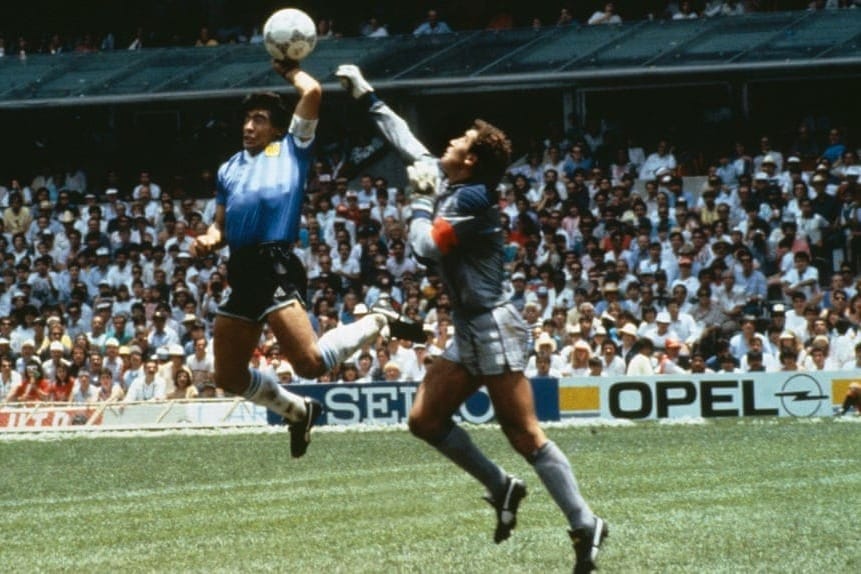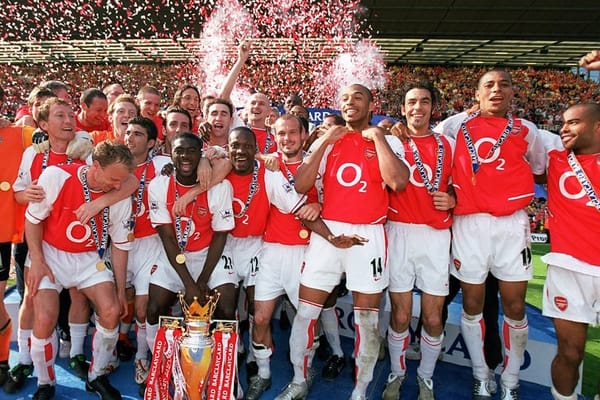Diego Maradona: The Hand of God
"... a little with the head of Maradona and a little with the hand of God."

Key words
- Controversial: causing disagreement or discussion
The referee’s decision to award the penalty was highly controversial.
- Allowed to stand: (in sports) when a decision or result is not changed after review
Despite protests from the opposing team, the goal was allowed to stand.
- Dribble: to move a ball forward by repeatedly kicking, bouncing, or tapping it
He skillfully dribbled past three defenders before scoring.
- In awe: feeling great respect or admiration for something or someone
The young players watched in awe as their football hero walked onto the pitch.
- Furious: extremely angry
The coach was furious after the referee disallowed the goal.
Comprehension Questions
- Where was Diego Maradona born?
- What was the "Hand of God" goal, and why was it controversial?
- How did the "Hand of God" goal affect England and Argentina differently?
- What challenges did Maradona face later in his life, and how is he remembered today?
Diego Maradona: A Football Legend
Diego Maradona was one of the greatest football players in history. Born in Argentina in 1960, he became famous for his incredible skill, passion, and leadership on the field. His career had many highs and lows, but he remains a legend in the world of football.
Maradona grew up in a poor neighborhood in Buenos Aires, Argentina. From a young age, he showed great talent in football. At just 15 years old, he made his professional debut for Argentinos Juniors. His skills quickly attracted attention, and he later played for Boca Juniors, one of Argentina’s most famous clubs.
In 1982, Maradona moved to Europe to play for FC Barcelona in Spain. Although he showed moments of brilliance, injuries and conflicts with opponents made his time there difficult. However, in 1984, he transferred to Napoli in Italy, where he became a true football hero.
The "Hand of God"
One of the most controversial moments in football history happened in the 1986 FIFA World Cup quarter-final between Argentina and England. In the 51st minute, Maradona jumped to challenge England’s goalkeeper, Peter Shilton, for the ball. Instead of using his head, he used his left hand to push the ball into the net. The referee did not see the handball and allowed the goal to stand. Maradona later described it as "a little with the head of Maradona and a little with the hand of God."
Just four minutes later, Maradona scored another goal, which is considered one of the greatest goals of all time. He dribbled past five England players before scoring, leaving fans and commentators in awe.
The "Hand of God" goal remains one of the most debated moments in football. In England, many saw it as an unfair act that denied them a chance to win the match. The English press and fans were furious, believing that Maradona had cheated. However, in Argentina, he was seen as a genius who outsmarted his opponents. This moment added to the historic football rivalry between England and Argentina.
Later Life and Legacy
After leaving Napoli, Maradona played for Sevilla, Newell’s Old Boys, and Boca Juniors before retiring. His later years were troubled by health issues and struggles with addiction. Despite these challenges, he remained a beloved figure in football.
Maradona passed away in 2020, but his impact on football is unforgettable. His skill, creativity, and passion inspired millions of fans and players around the world. Even today, Diego Maradona is remembered as one of the greatest footballers of all time.
Practice your English with football fans from around the world!
Discussion questions
- Do you have any questions about any of the vocabulary or grammar in this article?
- Do you think Maradona’s "Hand of God" goal was unfair, or was it just part of the game? Why?
- How do you think footballers should inspire people in their countries?
- Maradona faced many challenges in his life. How do you think fame and success can affect a person’s life, both positively and negatively?
- Football rivalries, like the one between Argentina and England, can be very emotional. Do you think sports should be taken so seriously, or should it just be for fun?

This article was written by Eddy
Improve your English communication skills by practicing with Eddy, a qualified and experienced native speaker.




